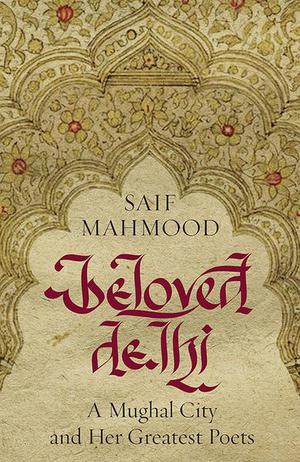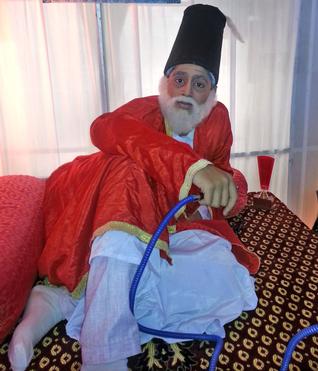NEW DELHI :

Eight poets of the past capture Delhi’s joys and sorrows
Saif Mahmood’s Beloved Delhi: A Mughal City and Her Greatest Poets offers offers a window into the life, times, and poetry of Delhi’s greatest Urdu poets from the 18th and 19th centuries, with witty and critical insight, in a conversational style that has become Saif’s hallmark in many a literary gathering.
Focusing on eight poets, he allows us to touch Delhi’s past and rethink its present through Urdu. Each chapter on a poet is divided into two sections — the first is biographical and provides the reader with insight into Delhi’s material conditions through the vicissitudes of the poet’s life. Thus, the 18th century poets are nomadic because of the post-Nadir Shah instabilities of Delhi.
The 19th century poets lead more sedentary lives, as the British Residency of Delhi provides the military support, at least until the cleavage of 1857. This upsets the tradition of the classical Urdu ghazal, and so the last poet analysed is Daagh Dehlvi, already writing in 1857, and a step-grandson of the last Mughal King, Bahadur Shah Zafar. The book also records this decline visually through Anant Raina’s photographs of the current gravesites of these poets, exhibiting the absolute lack of public or state support toward heritage maintenance.
The second part gives an excellent commentary on their poetry.
Saif’s familiarity with the tradition and his capacities for literary criticism shine through, as the raconteur in him narrates the stories of these poets’ poetry with coherence, complexity, and lucidity. The book highlights Urdu poets who are well known to Urdu readers, but not to listeners of ghazals or those interested in the literature from the outside.
Apart from Ghalib (described by Saif as ‘Master of Masters’), and Mir Taqi Mir (‘the Incurable Romancer of Delhi’), poets such as Sauda (‘the Great Satirist’), Mir Dard (‘Urdu’s Dancing Dervish’), Ustad Ibrahim Zauq (‘The Poet Laureate’), Bahadur Shah Zafar (the ‘Emperor’ who has an ‘Affair with Urdu’), and Daagh (‘the Last Casanova of Delhi’) get the attention they deserve.
The collection also brings out the specificities of their poetry including the great licence, often through satire, that many of these commanded with the ruling powers as dissenters. Tolerance for such criticism today rests uneasy with the crown. The poets extol the city of Delhi as picturesque, showing colours unimaginable, but also to be lamented after each violent tragedy, with a sense of loss, sometimes in a dedicated genre, the shahr-ashob or city-lament.
Beloved Delhi is for keeps and must be read by all with the remotest of interests in Urdu, Delhi, or poetry and poets.
Beloved Delhi: A Mughal City and Her Greatest Poets ; Saif Mahmood, Speaking Tiger, ₹599.
source: http://www.thehindu.com / The Hindu / Home> Books> Reviews / by Maaz Bin Bilal / November 03rd, 2018









